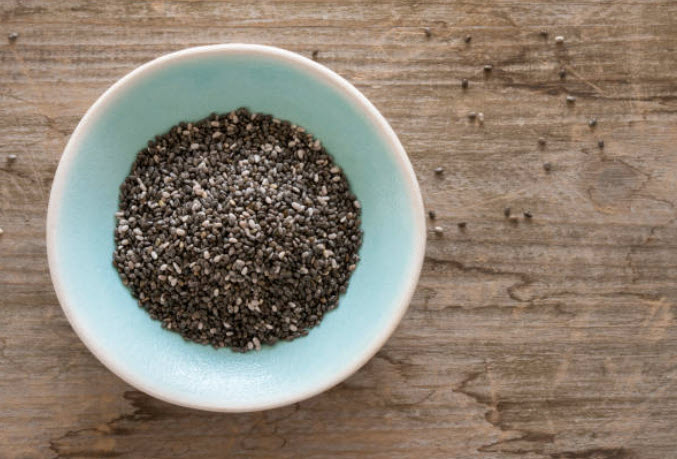Introduction
Diabetes is a chronic disease that affects millions of people worldwide. It is a condition in which the body cannot produce enough insulin, leading to high blood sugar levels. Diabetes requires strict management, including dietary changes, physical activity, and medication. Chia seeds are an excellent addition to a diabetes-friendly diet as they offer numerous benefits. In this article, we will explore the benefits of chia seeds for diabetes management and five ways to incorporate them into your diet.
Benefits of Chia Seeds for Diabetes Management
- Lowers Blood Sugar Levels
Chia seeds are high in fiber, which slows down the absorption of sugar in the bloodstream. They also contain alpha-linolenic acid (ALA), which has been shown to improve insulin sensitivity and reduce inflammation in the body. Research has shown that consuming chia seeds can lead to a significant decrease in blood sugar levels, making them an excellent addition to a diabetes-friendly diet.
- Rich in Antioxidants
Chia seeds are high in antioxidants, which protect the body against free radicals that can cause damage to cells and tissues. Antioxidants are essential for preventing chronic diseases such as diabetes, cancer, and heart disease. By incorporating chia seeds into your diet, you can increase your intake of antioxidants and reduce your risk of developing these diseases.
- High in Omega-3 Fatty Acids
Omega-3 fatty acids are essential for maintaining overall health, including reducing inflammation and improving heart health. Chia seeds are an excellent source of omega-3 fatty acids, making them an ideal addition to a diabetes-friendly diet.
- Improves Digestive Health
Chia seeds are high in fiber, which is essential for maintaining digestive health. Fiber helps to regulate bowel movements, reduce constipation, and prevent the buildup of waste in the intestines. By incorporating chia seeds into your diet, you can improve your digestive health and reduce your risk of developing digestive disorders such as constipation, irritable bowel syndrome (IBS), and diverticulitis.
- Helps with Weight Loss
Maintaining a healthy weight is essential for managing diabetes. Chia seeds are high in fiber and protein, which can help to reduce appetite and promote feelings of fullness. Research has shown that consuming chia seeds can lead to weight loss, making them an excellent addition to a diabetes-friendly diet.
5 Ways to Incorporate Chia Seeds into Your Diet
- Chia Seed Pudding
Chia seed pudding is a delicious and nutritious way to incorporate chia seeds into your diet. To make chia seed pudding, mix chia seeds with milk or a milk substitute such as almond milk and let it sit in the fridge for a few hours or overnight. You can also add sweeteners such as honey or maple syrup and flavorings such as vanilla or cocoa powder for added taste.
- Chia Seed Smoothie
Chia seeds can also be added to smoothies to boost their nutritional value. Simply blend chia seeds with your favorite fruits, vegetables, and milk or milk substitute for a delicious and healthy smoothie. You can also add protein powder or nut butter for added protein and flavor.
- Chia Seed Oatmeal
Chia seeds can be added to oatmeal to boost its nutritional value. Simply mix chia seeds with oatmeal and cook as usual. You can also add sweeteners such as honey or fruit for added taste.
- Chia Seed Salad
Chia seeds can also be added to salads to add texture and nutritional value. Simply sprinkle chia seeds on top of your favorite salad for a delicious and healthy addition. You can also mix chia seeds with salad dressing for added flavor and nutrition.
- Chia Seed Baked Goods
Chia seeds can be added to baked goods such as
muffins, bread, and cookies to boost their nutritional value. Simply mix chia seeds into the batter or dough before baking. Chia seeds can replace eggs in some recipes, making them an excellent vegan option for baked goods.
Precautions and Considerations
While chia seeds offer numerous benefits for diabetes management, there are some precautions and considerations to keep in mind.
- Moderation is Key
Chia seeds are high in fiber, and consuming too much can lead to digestive discomfort such as bloating, gas, and constipation. It is recommended to start with a small amount and gradually increase your intake over time.
- Soak Chia Seeds
Chia seeds can absorb up to 10 times their weight in water, which can lead to digestive discomfort if they are not properly hydrated. It is recommended to soak chia seeds in water or milk for at least 30 minutes before consuming to ensure they are properly hydrated.
- Medication Interactions
Chia seeds may interact with some medications, such as blood thinners. If you are taking medication, it is essential to consult with your healthcare provider before adding chia seeds to your diet.
- Allergies
Chia seeds come from the mint family and may cause allergic reactions in some people. If you have a history of allergies to mint or other herbs, it is recommended to consult with your healthcare provider before adding chia seeds to your diet.
Conclusion
Chia seeds are an excellent addition to a diabetes-friendly diet. They offer numerous benefits, including lowering blood sugar levels, improving digestive health, and promoting weight loss. Chia seeds can be incorporated into your diet in various ways, including chia seed pudding, smoothies, oatmeal, salads, and baked goods. While chia seeds offer many benefits, it is essential to consume them in moderation and consult with your healthcare provider before adding them to your diet, especially if you are taking medication or have a history of allergies.
